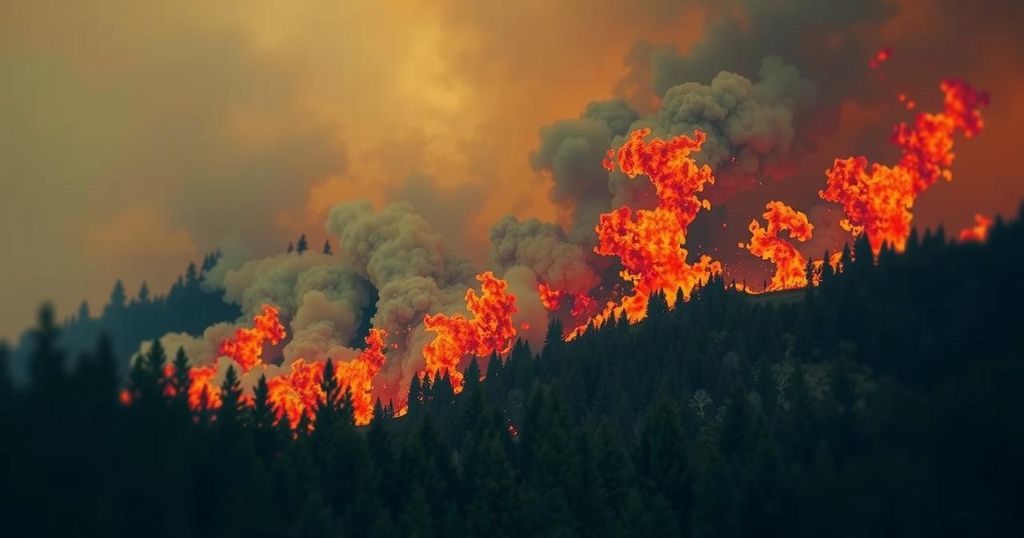Wildfire smoke pollution linked to climate change is responsible for an estimated 12,000 annual deaths, reflecting a significant rise in mortality associated with air pollution from fires. The recent study highlights increased fatalities globally, particularly in regions such as South America, Australia, and Europe, emphasizing the urgent need for improved fire management and emissions reductions to protect public health.
Recent findings indicate that smoke pollution resulting from wildfires has led to an increase of approximately 12,000 deaths annually, a concerning statistic attributed largely to climate change. The rise in wildfire frequency and intensity, exacerbated by warmer and drier conditions, has intensified the health risks associated with smoke inhalation, particularly from the fine particulate matter known as PM2.5, which significantly contributes to respiratory and cardiovascular diseases. A study published in the journal Nature Climate Change highlights that the annual deaths linked to wildfire smoke climate change attributes escalated from 669 in the 2000s to an alarming 12,566 in the 2010s. Overall, fire-related pollution fatalities have doubled from approximately 46,401 deaths in the 1960s to 98,748 by the 2010s. Regions notably affected include South America, Australia, and Europe, where lower humidity and rising temperatures have intensified wildfire risks. Conversely, South Asia has seen fewer deaths due to increased humidity factors that mitigate these effects. Lead author Chae Yeon Park from the Japanese National Institute of Advanced Industrial Science and Technology emphasized that the evidence underscores an escalating public health threat from wildfire smoke, reaching urban populations far from the fire sources. Through advanced pollution models and health risk assessments, the research analyzed the direct correlation between emissions-induced deaths and climate change.
The alarming increase in mortality associated with wildfire smoke can be traced back to the broader implications of climate change, which has led to rising temperatures and prolonged dry spells, creating ideal conditions for more frequent and severe wildfires. The resultant smoke not only produces pollutants that pose direct health threats but also travels vast distances, impacting air quality in regions that may not be directly affected by the fires themselves. This complex interplay of environmental and health factors emphasizes the need for comprehensive emissions reduction and enhanced wildfire management strategies.
The results of this study serve as a clarion call for immediate action to mitigate the health impacts of wildfire smoke pollution driven by climate change. As the frequency and intensity of wildfires increase, particularly in regions with vulnerable populations, a collective effort towards reducing emissions and implementing effective fire management strategies is essential for protecting public health and maintaining air quality across affected regions globally.
Original Source: www.independent.co.uk






